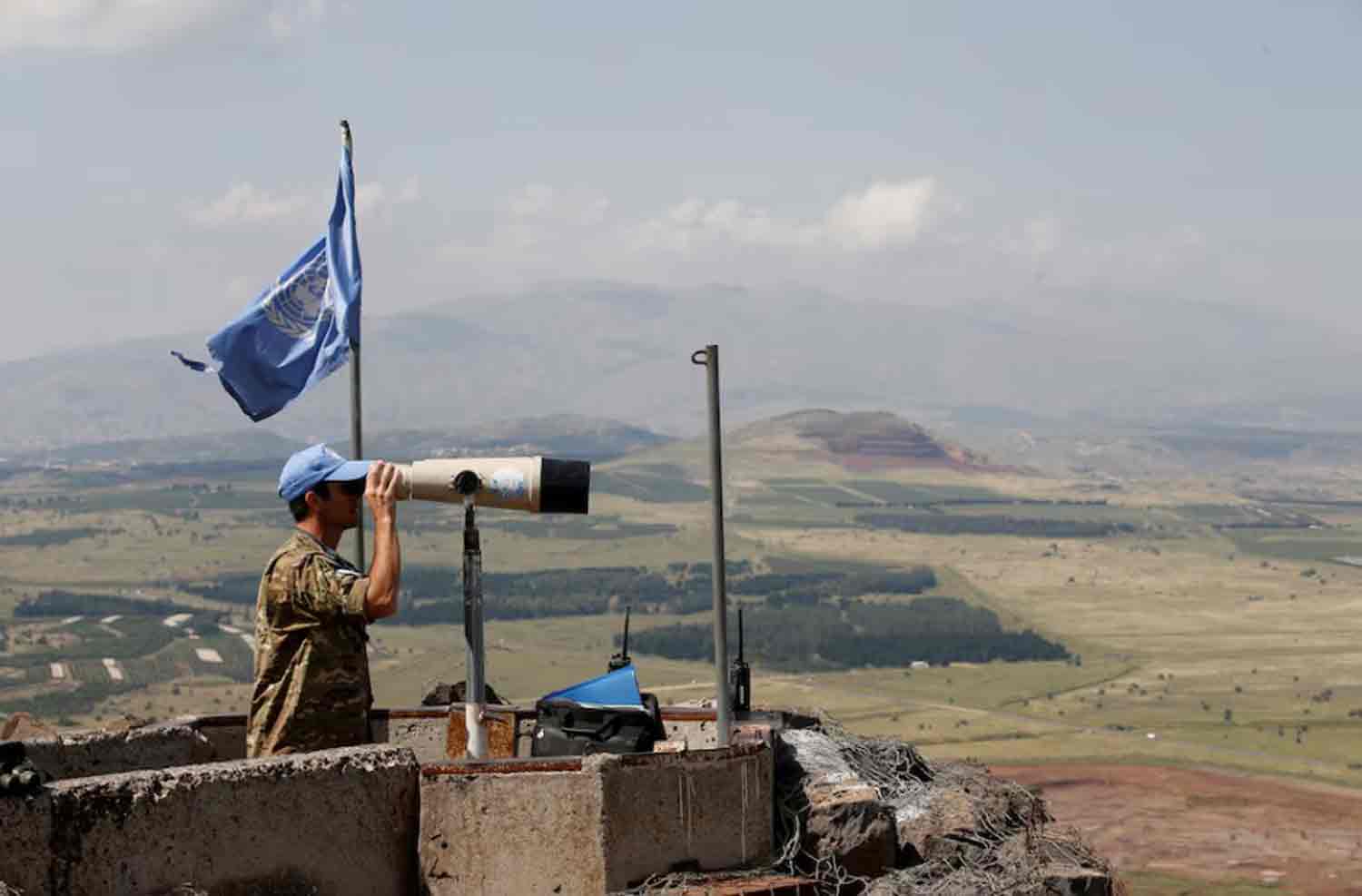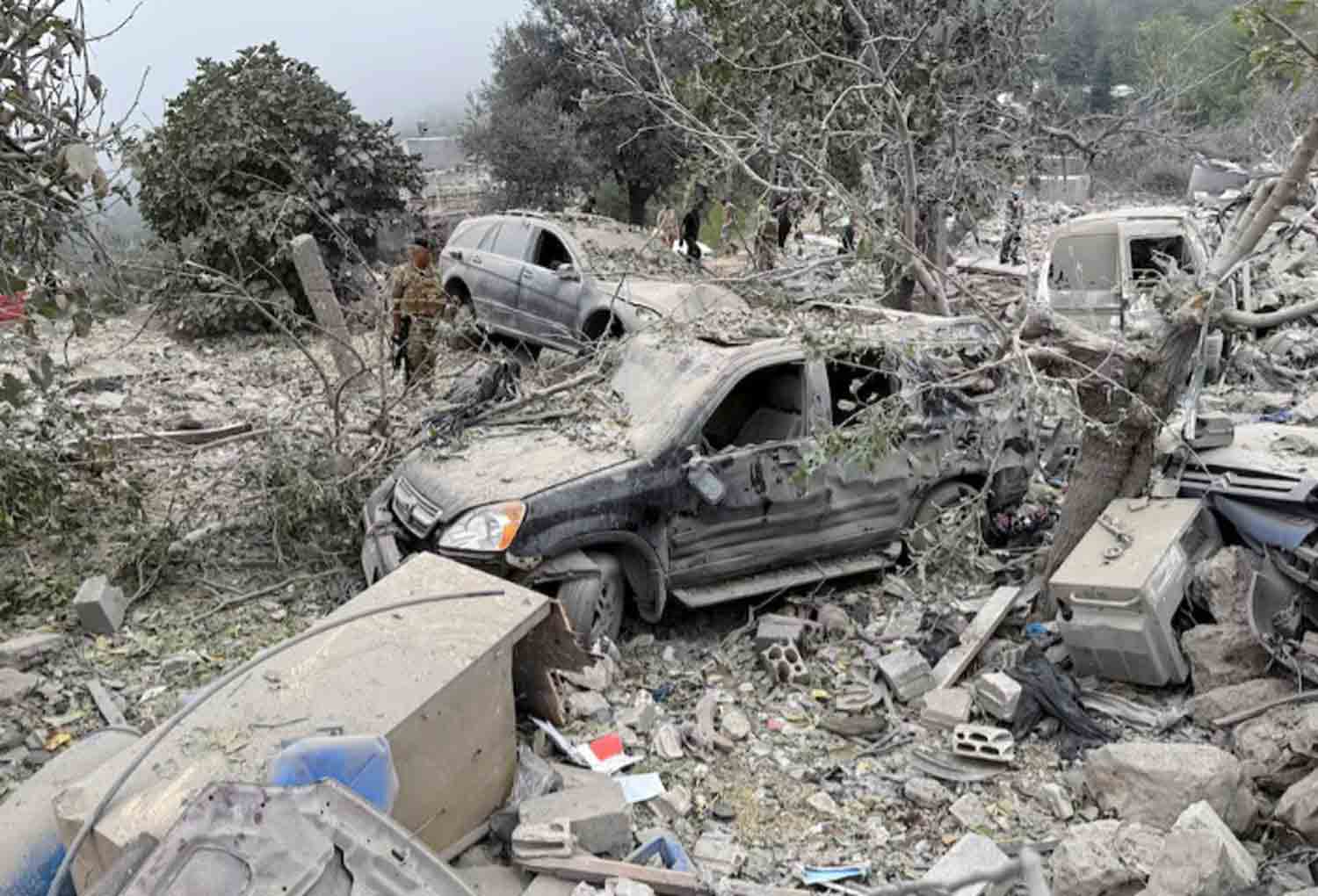Israel appears to be preparing to intensify its ground operations against Hezbollah while enhancing its defensive measures. Reports indicate that Israeli forces have been clearing landmines and constructing new barriers along the border between the Israeli-occupied Golan Heights and a demilitarized zone adjacent to Syria, according to security sources and analysts.
This development implies that Israel may be planning to launch strikes against Hezbollah from a more easterly position along Lebanon’s border, while simultaneously establishing a secure zone that would allow for reconnaissance of the militant group and prevent any potential infiltration, the sources noted.
In addition to the reported demining efforts, sources speaking to Reuters—including a Syrian soldier in southern Syria, a Lebanese security official, and a U.N. peacekeeping representative—provided further insights indicating that Israel is relocating the fence of the demilitarized zone closer to the Syrian side and reinforcing its fortifications in the region. Military operations involving incursions from the Israeli-occupied Golan Heights and possibly from the demilitarized zone could escalate the ongoing conflict between Israel and Hezbollah, as well as its ally Hamas, which has already involved Iran and poses a risk of drawing in the United States.
Israel has been engaged in hostilities with Hezbollah, which is supported by Tehran, since the group initiated missile strikes across the Lebanese border in solidarity with Hamas following its lethal assault on southern Israel. This escalation prompted Israel to launch a military operation in Gaza.
In the past month, Israeli airstrikes have inflicted considerable damage on Hezbollah, and the group is now also facing ground assaults from the south and naval bombardments from the Mediterranean to the west.
By expanding its operations to the east, Israel aims to disrupt Hezbollah’s supply routes for arms, many of which traverse Syria, Lebanon’s eastern neighbor and an ally of Iran. Navvar Saban, a conflict analyst at the Istanbul-based Harmoon Center, noted that the military activities in the Golan Heights, a 1,200 square kilometer (460 square mile) plateau that overlooks Lebanon and borders Jordan, seem to be a strategy to “set the stage” for a larger offensive in Lebanon.
The ongoing events in Syria are primarily aimed at advancing Israel’s strategic interests in Lebanon, specifically targeting supply routes, warehouses, and individuals associated with Hezbollah’s supply lines, as stated by the source. Recent reports from a Syrian intelligence officer, a soldier stationed in southern Syria, and three high-ranking Lebanese security officials indicate that Israel has intensified its mine clearance and engineering operations in recent weeks.
FORTIFICATIONS
According to sources, demining efforts have escalated as Israel initiated ground operations on October 1 to combat Hezbollah in the rugged terrain that lies approximately 20 km (12 miles) west of northern Israel and southern Lebanon. Concurrently, Israel has increased its airstrikes in Syria, targeting areas including the capital and the Lebanese border. Reports indicate that Russian military units, which have been supporting Syrian forces in southern Syria, have vacated at least one observation post that overlooks the demilitarized zone, as stated by two Syrian sources and one Lebanese source.
All sources requested anonymity to discuss their observations of Israel’s military activities in the Golan Heights, a region that Israel captured from Syria in 1967. A Syrian soldier stationed in the south reported that Israel is extending the fence that separates the occupied Golan from the demilitarized zone (DMZ) and constructing fortifications near Syria to prevent any potential infiltration should tensions escalate. The soldier noted that Israel seems to be establishing “a buffer zone” within the DMZ. Additionally, a senior Lebanese security source informed Reuters that Israeli forces had excavated a new trench close to the DMZ in October.
Another senior Lebanese security official suggested that the demining operations could enable Israeli troops to “encircle” Hezbollah from the eastern side. For the past fifty years, the DMZ has been monitored by the U.N. Disengagement Observer Force (UNDOF), which is tasked with overseeing the separation of Israeli and Syrian forces following the 1973 conflict. A U.N. peacekeeping representative in New York confirmed that UNDOF had “recently observed some construction activity being carried out by Israeli military forces in the vicinity of the area of separation,” although further details were not available.
RUSSIA WITHDRAWS FROM OVERLOOK POINT
In response to inquiries regarding demining efforts, the Israeli military stated that it “does not comment on operational plans” and is currently engaged in combat against the terrorist organization Hezbollah to facilitate the safe return of residents in the northern region to their homes.
Requests for comments from UNDOF, Russia, and Syria went unanswered by Reuters. A report submitted to the U.N. Security Council on UNDOF’s activities, dated September 24 and reviewed by Reuters on October 4, noted violations from both sides within the demilitarized zone.
According to two Syrian sources and one Lebanese source, Russian forces have vacated the Tal Hara outpost, which is the highest point in Syria’s southern Daraa governorate and serves as a critical observation point. A Syrian military officer indicated that the withdrawal was a result of agreements with the Israelis aimed at avoiding conflict.
Syrian authorities, aligned with Iran’s ‘Axis of Resistance’, have attempted to remain neutral amid escalating regional tensions following Hamas’s assault on October 7 of the previous year. In January, Reuters reported that Assad had been advised against taking any supportive actions for Hamas due to threats from Israel. Additionally, Hezbollah has also refrained from increasing its military presence in the Syrian-held Golan Heights.
Discover more from Defence Talks | Defense News Hub, Military Updates, Security Insights
Subscribe to get the latest posts sent to your email.





